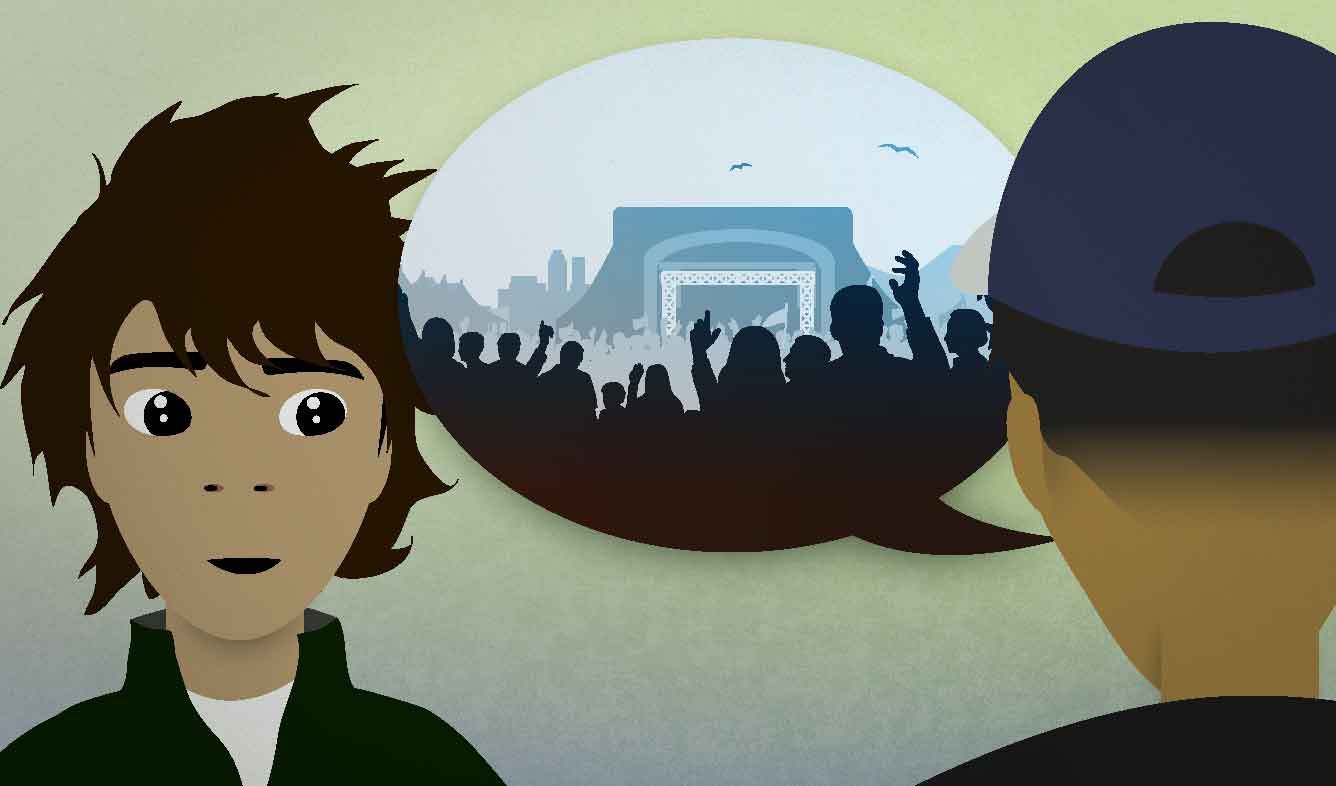“That sounds like a blast!”
You're chatting with a coworker, who tells you that he's going to a music festival this weekend. It seems like fun, so you respond enthusiastically.
That sounds like a blast!
Want Video and Sound? Follow us on YouTube

that
When do we use "that" instead of "it"?
Use "it" to refer to something that you're talking about, or the focus of your conversation. Use 'that' to discuss something that another person just said. So a conversatiom might start like this:
A: Hey, what was that you just said?
B: I said "I don't have any beef with him."
A: What does that mean?
Now, since the phrase "have beef" has become the topic of the conversation, you can refer to it with "it":
B: You mean "have beef"? It's a phrase that means that I'm not angry with him, or I don't have any problem with him.
A: Is it widely used?
However, the differences between "that" and "it" are subtle. It usually won't cause any big communication problems if you switch them up.
(something) sounds like (something)
When you want to comment on what a person talked about, you can use the phrase "___ sounds ___":
Your job sounds fun.
That sounds complicated.
When you use this expression, the word that follows "sounds" should be an adjective ("fun", "complicated", "heavy", "expensive", etc.)
If you want to use a noun instead of an adjective, the phrase is "___ sounds like ___":
That sounds like a lot of work.
Your town sounds like the town I grew up in.
Those guys sound like a fun group.
(something is) a blast
When something is really fun, you can say that it's "a blast".
A: Have you been to the State Fair?
B: No, I haven't.
A: You should go. It's a blast!
Your party was a blast. Thanks so much for inviting me!
There's also the phrase "have a blast":
A: How was Argentina?
B: I had a blast!
"A blast" is OK to use whenever you are enthusiastic and excited. It's OK in both formal and casual situations.
